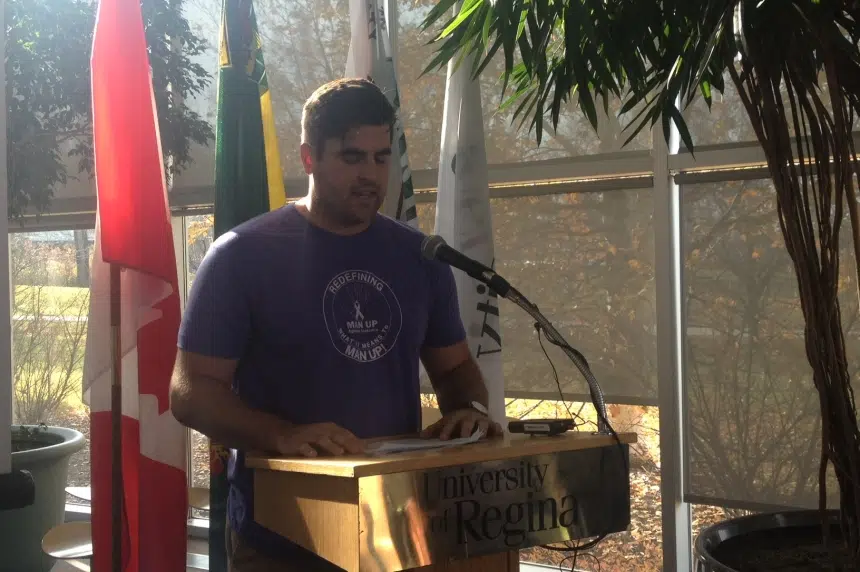The University of Regina is stepping up its response to sexual assaults on campus with a new policy that aims to change attitudes and protect victims who report.
Jill Arnott is a professor of gender studies and the executive director of the Women’s Centre at the U of R. She says the comfort and safety of sexual assault survivors is the key focus and the policy needed to change to reflect that. Arnott says this provides a clear set of guidelines on how to handle any report of sexual assault or violence on campus.
“What happens if they don’t want to go to the police? Or what happens if it’s in a residence or what if they don’t want their name used? What if they don’t want the university to know? What if they just need to talk to someone because they need support,” she listed.
Arnott says sexual assault is so common that it’s rare to know a woman who hasn’t experienced it, even though nobody really talks about it. She says society is making progress on changing attitudes about consent, but there is still a long way to go.
“We also still live in a world where we wonder what she was doing there? There’s still this conversation around was she drinking and why would she take off with a group full of guys,” she said. “There’s still this idea that what a woman wears somehow says something about her character.”
Arnott says that kind of environment is not helping women or survivors feel confident that they can come forward and not be blamed. She says it was vital to allow survivors to report sexual assaults anonymously to get help.
“People aren’t going to come forward if they think they’re going to be outed,” she said.
Right now only 10 per cent of sexual assaults actually get reported and Arnott believes this will change if survivors are able to come forward without being publicly scrutinized. Sometimes, she says the legal process can make survivors feel violated all over again.
The announcement of the sexual assault policy was held in conjunction with the launch of the Man Up Against Violence Campaign at the U of R. The awareness campaign aims to change the typical ‘tough guy’ ideal of masculinity into one that encourages men to be advocates to prevent violence.
Tyler Perkins is a defensive end on the U of R Rams football team, but he is also actively involved with the Man Up Campaign. He says studying sociology has opened his eyes to the scope of the issue of violence against women and he thinks everyone needs to speak up against it.
He notices negative attitudes about consent particularly around the party scene at the university where people expect women to have sex and they expect men to have a lot of it.
“I can see exactly how that leads to violence because when it’s expected of someone and they don’t get it, they’re willing to take it,” he said.
Perkins says we need to start changing how boys are being socialized into solving problems with violence. He says people who argue that it’s not really that big of a problem should take time to really understand the research because the links are there.
“Although you might not be doing it yourself – you might not be the one raping someone – but when you don’t say something, when you hear these really terrible attitudes about it, then you’re allowing other people to do it,” Perkins commented.
You can find more information about the sexual assault policy online.











